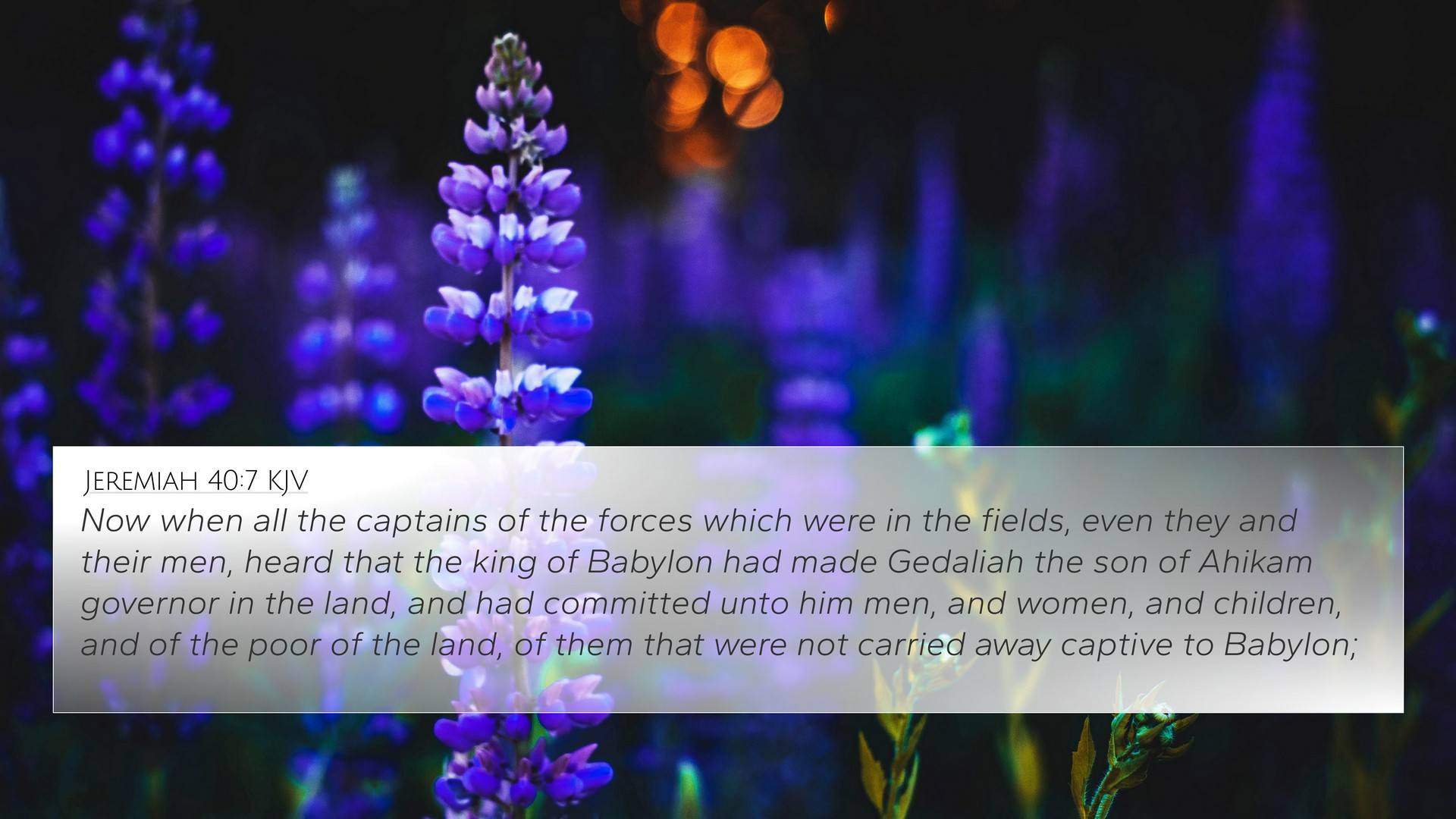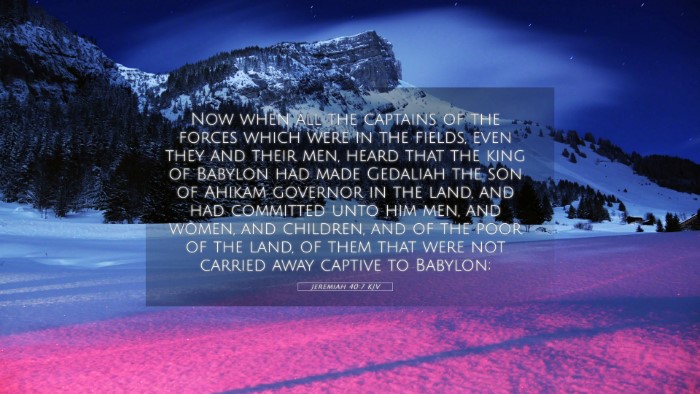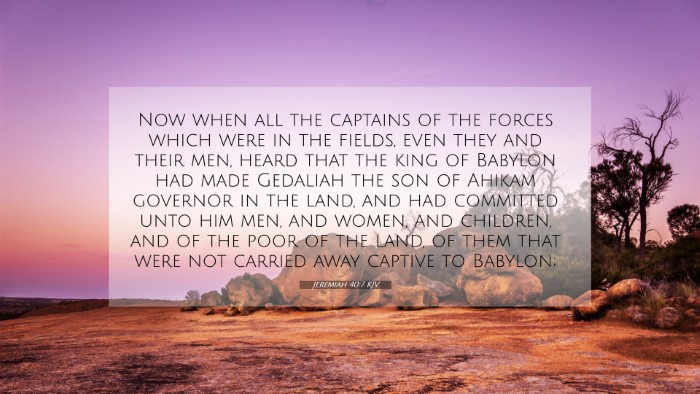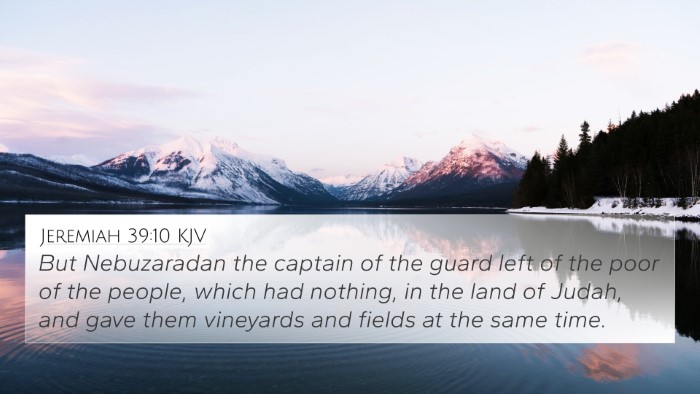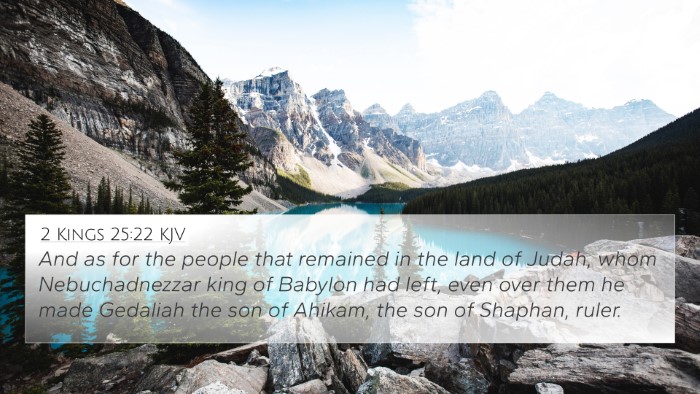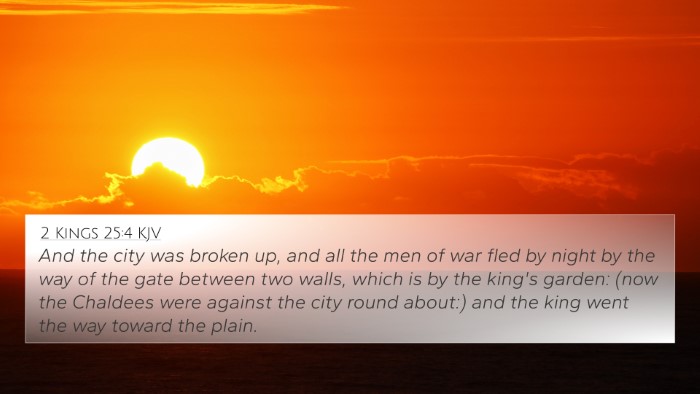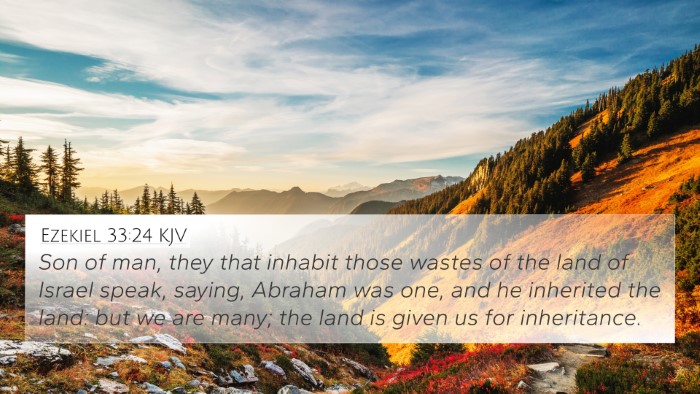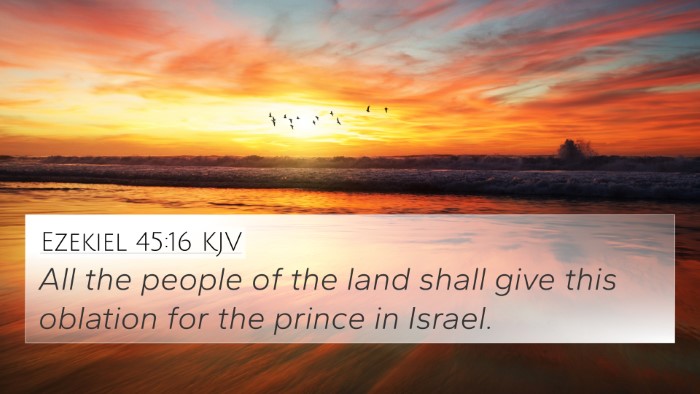Understanding Jeremiah 40:7
Jeremiah 40:7 states:
"Now when all the captains of the forces which were in the field, even they and their men, heard that the king of Babylon had made Gedaliah the son of Ahikam governor in the land, and had committed unto him men, and women, and children, and of the poor of the land, of them that were not carried away captive to Babylon;"
Summary of Meaning
This verse marks a critical moment in the aftermath of Jerusalem's destruction. The appointment of Gedaliah as governor signifies a shift in leadership and hope for the remnant in Judah. The captains’ reaction indicates a lesson on authority, as their acknowledgment of Gedaliah reflects the broader theme of divine sovereignty amid chaos.
Insights from Public Domain Commentaries
-
Matthew Henry:
Henry emphasizes the providence of God in the selection of Gedaliah, suggesting that even in ruin, God preserves a remnant. He points out that Gedaliah's leadership should inspire obedience to the appointed authority, as it aligns with God’s plans.
-
Albert Barnes:
Barnes notes that the captains of the forces signify a mix of resistance and submission in the hearts of the people. Their eventual acceptance of Gedaliah symbolizes the importance of recognizing God’s appointed leaders as a form of wisdom and faithfulness.
-
Adam Clarke:
Clarke sheds light on the historical context, suggesting that Babylon’s governance reflects both mercy and providence. The gathering of the poor and vulnerable illustrates the social dynamics at play, and the hope they held for a stable polity under Gedaliah.
Bible Verse Cross-References
Jeremiah 40:7 connects with various other scripture passages. Here are some important cross-references that enhance its meaning:
- Jeremiah 39:14 - Highlights the transition of authority post-captivity.
- Jeremiah 41:1-3 - Discusses the conspiracy against Gedaliah, reflecting the challenges he faced.
- 2 Kings 25:22-26 - Further elaborates on people left in the land under Gedaliah’s leadership.
- Jeremiah 30:18-20 - Provides a theme of restoration and hope for the people of Judah.
- Isaiah 44:28 - References God's sovereignty in appointing leaders, connecting to Gedaliah’s role.
- Romans 13:1 - Discusses submission to governing authorities, paralleling themes in Jeremiah 40.
- Matthew 10:16 - Provides insight into being wise as serpents, akin to the strategical challenges faced post-exile.
Connections Between Bible Verses
Connecting Jeremiah 40:7 to broader biblical themes aids in a deeper understanding of leadership, authority, and God’s overarching plan:
- Leadership and Authority: The appointment of Gedaliah can be cross-referenced to New Testament principles of authority and submission.
- Hope and Restoration: Verse connections that speak of hope, like Jeremiah 29:11, reinforce God’s promises to His people.
- Divine Providence: The narrative can be aligned with the accounts of God's sovereignty in both Old and New Testaments.
Comparative Bible Verse Analysis
To gain a holistic understanding, it's essential to explore the comparative analysis between Jeremiah 40:7 and other passages that speak on similar themes:
- 1 Samuel 16:1-13 - The anointing of David as king reflects divine choice in leadership, much like Gedaliah’s appointment.
- Ezra 1:1-4 - Illustrates God raising leaders to signal restoration post-exile.
- Acts 13:22 - God’s chosen leadership in the early church parallels the notion of divine will in governance as seen in Jeremiah.
Thematic Bible Verse Connections
This verse also links to broader themes, such as:
- The theme of governance: Seen in both the Old Testament through kingship and the New Testament through church leadership.
- The resilience of God’s people: Recurrent theme through trials faced, as evident in Hebrews 11.
Scriptural Cross-Referencing
Utilizing tools for Bible cross-referencing enhances study:
- Bible Concordance: Essential for locating related verses efficiently.
- Cross-Reference Bible Study: An approach to understand deeper connections.
- Comprehensive Bible Cross-Reference Materials: Useful resources for in-depth theological study.
Conclusion
Jeremiah 40:7 offers a profound insight into the nature of leadership appointed by God and the wandering hearts of His people. The connections drawn through careful cross-referencing with other biblical texts reveal a thematic tapestry woven throughout scripture that emphasizes hope, authority, and divine guidance.
